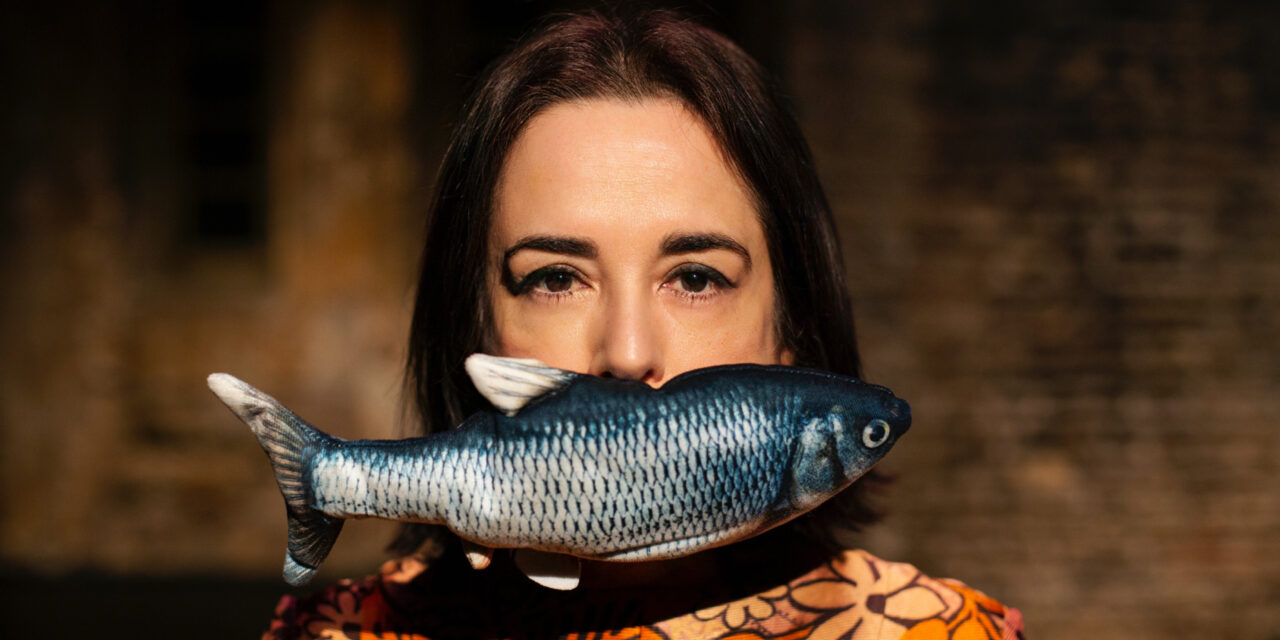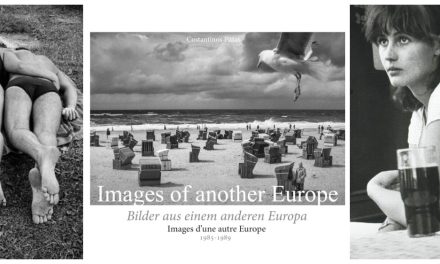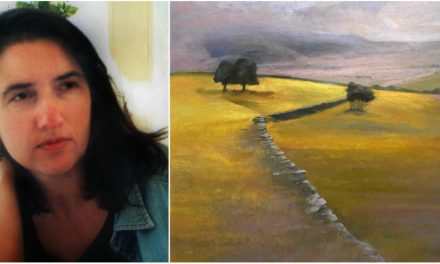Olga Pozeli is a stage director, actress and writer; she is a prolific artist and arguably the most important representative of devised theater in Greece.
Pozeli has studied English Literature at the Aristotle University of Thessaloniki and trained as an actress at Roula Pateraki’s Drama School. She then took her MA in Drama and Theatre Studies, on a British Council’s and the Academy of Athens’ scholarship, at the Royal Holloway and Bedford New College, University of London, with a major in Directing. On her return to Greece she formed a theatre company, NOITI GRAMMI, the productions of which she directs ever since. NOITI GRAMMI has presented several devised theater productions, but also plays by David Mamet and Steven Berkoff, among others.
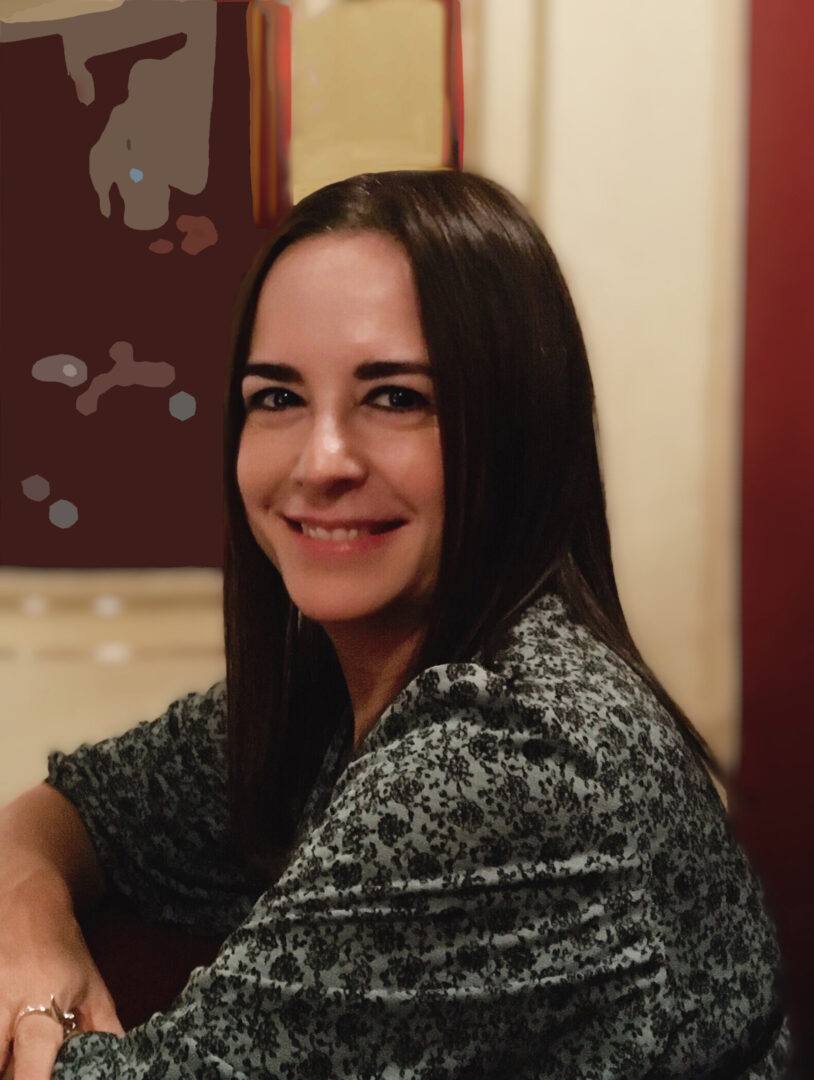
Olga Pozeli has been nominated for two awards (one by the Hellenic Association of Theater and Performing Arts Critics and the other by the Athinorama magazine) for the productions Do you love me? and Kvetch. In 2012, the International Festival of Monoperformances Vidlunnja awarded her the Festival Directors’ Award for the monodrama When the red Toyota went off the road and sank in black water. In November 2016, at the International Experimental Theater Festival held in Hanoi, Vietnam she received the Award for Experimental Innovation for the production I remember.
Since 2008, Olga Pozeli is the Secretary of the International Monodrama Forum of the International Theatre Institute (ITI), while at the same time she acts as an advisor for Fujairah International Monodrama Festival (UAE). From 2004 to 2011, she taught Theater Direction in the Department of Theater Studies of the University of Patras. She is in charge the European Theatre Project PEEP at Moraitis School.
Greek News Agenda spoke* with Olga Pozeli on the art of devised theater the way it defies traditional hierarchies in the process of theater-making.
You are one of the most important representatives of devised theater in Greece. Tell us about this method; what are its main differences from both traditional theater and improvisational theater?
Devised theatre is not a movement in itself, nor a distinct theatrical genre, hence an attempt to historically chart the course of the art of devising until the term “devised theater” was officially introduced into theatrical dictionaries, into the curricula of theater departments in universities and into the audience’s collective conscious, would inevitably end up as an inexhaustive record of individual artists and productions scattered over several decades.
The method of devising in theatre is a process in which a group of people start creating from scratch, without a pre-existing theatrical text. And it is usually a group of people who share a common ideology, believe in the equality of partners, and wish to express their social and political concerns through their art. Among them there are those who are more extroverted, who explore the human condition in society, analyze social institutions, study political issues, and those who are more introverted, who are concerned with the way we perceive, feel, think, the structure of thought, the nature of consciousness, the self in relation to art. We belong to the latter group.
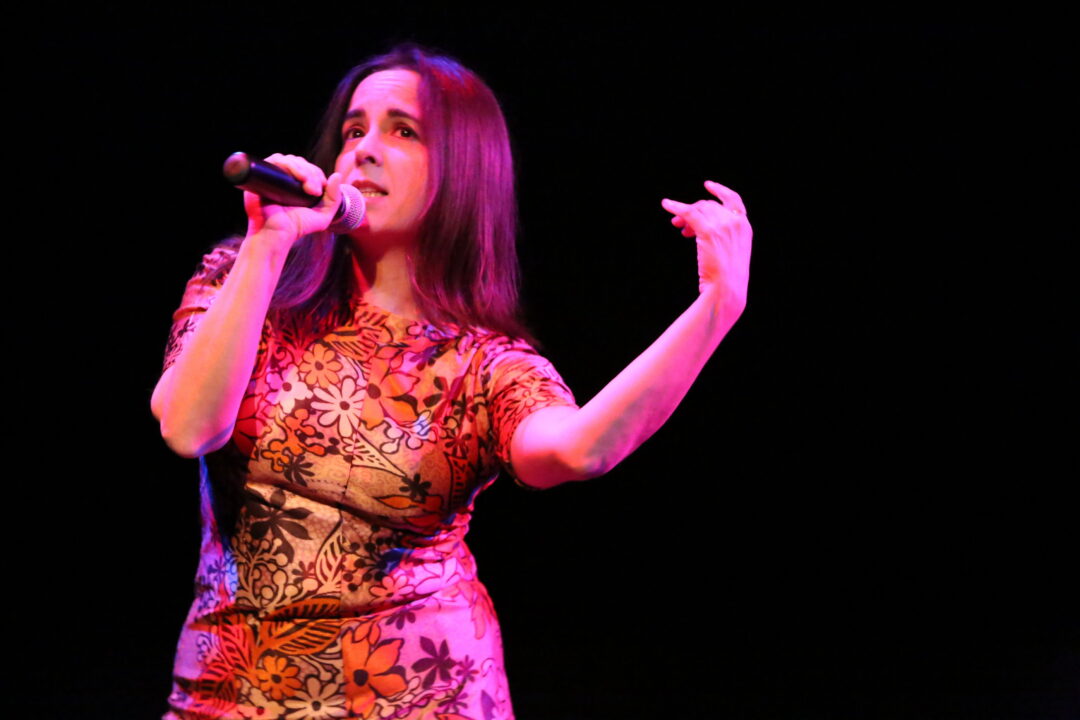
What were your goals when you founded the theatrical group NOITI GRAMMI?
The basic principle which permeates every performance by NOITI GRAMMI during its 25 years of presence in Greek theater, is restoring parity between the different theatrical codes that make up a performance (text, acting, stage design, costume design, kinesiology, music, etc.). We do not believe that one of the above codes is the focal point of the performance event and the others merely frame or enhance it. On the contrary, we are convinced that a contemporary performance is a complex sum of many different but completely equal elements. For this reason, our productions are more in the logic of stage composition. In such a light, the role of the director is not limited to merely proposing an interpretation of the dramatic text and directing the actors, but rather extends to designing and then composing the entire universe of a production from a collection of diverse elements. It is natural for such an approach to elevate the role of the visual in such a way as to restore its parity with speech.
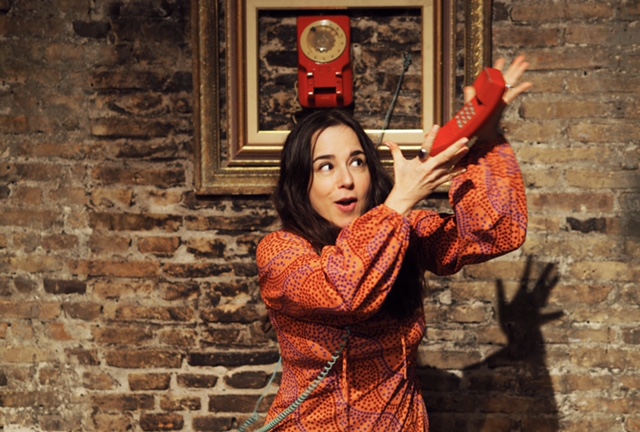
NOITI GRAMMI has successfully staged many productions representative of devised theater, but not exclusively. How different from the traditional approach is your approach to staging a pre-existing play?
In terms of performance, an actor in NOITI GRAMMI move away from the principles of psychological-realistic theater: they are not encouraged towards an emotional-psychological portrayal of the roles -often descriptive of emotion- but are guided towards a more abstract -and therefore open- kind of acting, which enables the audience to choose for themselves what their attitude will be towards the events on stage. On a physical level, we try to explore the personal expression of the body – a body that carries its own history. In the rehearsal room, the actors question current kinesiological forms and try to discover their own very personal improvisational material, thus emphasizing the creative process rather than the result. In this way, the natural potential of the body comes to the foreground, but so do its limitations. This disparity – the regression between virtuosity and weakness – is a basic axis of the way in which each theatrical persona is represented on stage. We also move away, as far as possible, from traditional theatrical spaces, arguing that the separation between audience and actor prevents both from feeling that they belong to a community and from sharing the same theatrical experience. That’s why we’ve done two promenade shows so far – EX LIBRIS, in libraries, bookstores and cultural venues, and CONFESS in private houses.

Your group is staging for the second year the show Bites, which you describe as “an adult show about animals”. What prompted you?
Animals have been and always will be a central element of the human world. We may completely ignore, or choose to ignore, the vast majority of them (let’s not forget that insects comprise more than two-thirds of living organisms) but those we interact with are of immense and essential importance to us. In recent years we have noticed that society has begun to re-examine its relationship with them. It’s now more than small, utopian minorities that are concerned with animal welfare issues; there is a large number of advocates at the forefront of these battles, articulating their positions eloquently and boldly. So we too are making an attempt to explore what the place of animals is in a socially conscious art. We move the animal from the position of victim/object, transforming it into an active subject.
You have taught Stage Direction at the University of Patras and since 2013 you have been in charge of the European project PEEP International Theatre Project at the Moraitis School. How much does your experience in theater -especially in this particular method- help you in the process of teaching, and how does teaching influence your work as a director?
Teaching has always been an important component of my work. The six years I taught at the Department of Theatre Studies of the University of Patras were probably the most creative in this respect. Young people inspire you and remind you that life goes on and you have to keep up with it! I taught at the Moraitis School for ten years and now I have kept the PEEP Theatre Project at its high school – a European project that brings us every time together with different schools in Europe, with the common goal of creating a small theatrical production.
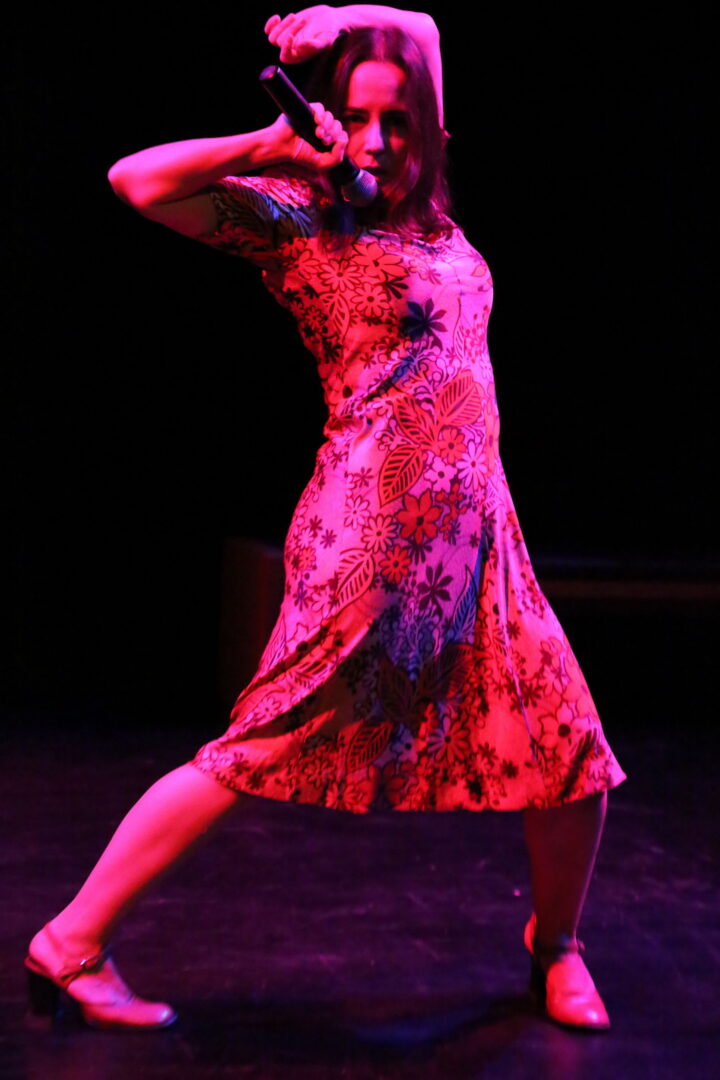
This year, as a guest of the Egyptian government at the 31st Experimental Theater Festival, you gave experiential seminars on devised theater to young people from Egypt. Would you like to tell us about this experience?
It was an eye-opening experience! I introduced 12 Egyptian actors to the art of devised theater. Although they had no previous contact with this art form, they offered me their trust and were willing to experiment, take risks and become, during the five days of the seminar, an unexpectedly close-knit group that managed to create small scenes of devised theater.
The production Does it Bite? is presented Fridays at 21.00, at Fournos Thater
*Interview by Nefeli Mosaidi

